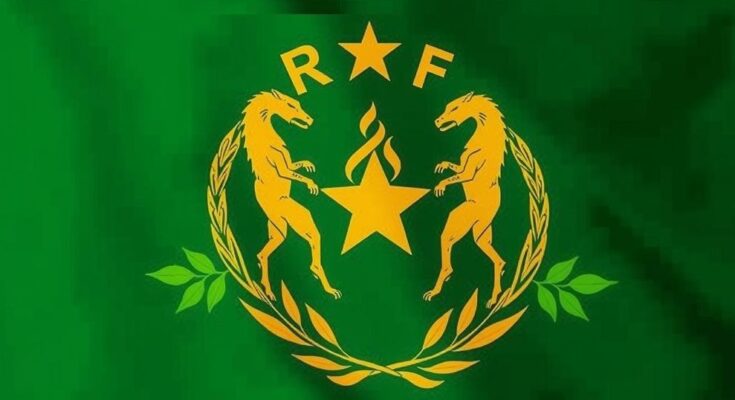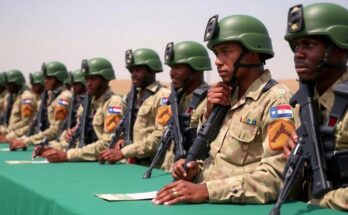The RSF in Sudan has denied accusations of human rights abuses and foreign assistance while claiming to prioritize peace in the ongoing conflict with the Sudanese army. They reaffirmed their commitment to humanitarian efforts, despite widespread allegations of war crimes and sexual violence against civilians. The situation highlights the urgent need for a ceasefire and peace negotiations amidst severe accusations of atrocities.
On Monday, Sudan’s Rapid Support Forces (RSF), embroiled in conflict with the national army, publicly denied allegations of human rights abuses and assistance from the United Arab Emirates. General Omar Hamdan Ahmed, heading the RSF delegation, asserted that the group was not receiving any foreign support and claimed to prioritize peace over violence. He instead accused Egypt of providing backing to the Sudanese army, a statement that Cairo has contested. The ongoing turmoil in Sudan has persisted since April 2023, marked by bitter confrontations between the RSF, led by General Mohamed Hamdan Dagalo, and the army under the command of General Abdel Fattah al-Burhan. Both factions have faced accusations of severe war crimes, including attacks on civilians, destruction of residential areas, and the obstruction of humanitarian aid. The RSF in particular has been implicated in serious misconduct such as rampant looting and systematic sexual violence, with UN reports estimating that between 10,000 and 15,000 individuals have lost their lives in conflicts in West Darfur alone. In Nairobi, RSF representative Mohamad Mokhtar claimed that any violations of human rights were the responsibility of rival forces, attributing only one incident of rape to their areas of control, contrary to UN assessments which describe widespread sexual violence and abductions for sexual servitude. Mokhtar referred to accusations of sexual violence as “social media propaganda” and highlighted the RSF’s commitment to conducting medical checks to verify reported abuses. RSF advisor Ezzadden Elsafi emphasized their readiness to cease hostilities, stating that peace must be prioritized, and urged other parties to engage in sincere negotiations aimed at ending the conflict. He noted their participation in various international peace efforts while attributing failures to the opposing side. Despite their military presence, he reiterated the RSF’s commitment to a nationwide ceasefire and facilitating humanitarian assistance to vulnerable populations. The most recent report from the UN Fact-Finding Mission for Sudan underscored alarming rates of sexual violence in the context of the conflict, primarily implicating the RSF in gang rapes and other forms of sexual exploitation. The ongoing conflict in Sudan has resulted in significant loss of life and widespread dislocation, with over 11 million individuals displaced, including approximately 3.1 million fleeing to neighboring countries.
The situation in Sudan has become increasingly dire since the resumption of conflict in April 2023. The RSF, a powerful paramilitary group, has been accused of committing egregious human rights violations during the ongoing conflict with the Sudanese army. The UN has reported on war crimes committed by both parties, including public safety threats, and has expressed concern specifically regarding the humanitarian impact of the conflict. This particular statement from the RSF comes amidst a backdrop of increasing international scrutiny and calls for accountability regarding the situation in Sudan, particularly concerning allegations of widespread sexual violence and orchestrated attacks on civilians.
In conclusion, the RSF has publicly refuted claims of human rights abuses and foreign support while continuing to navigate a complex and violent conflict in Sudan. Despite their assurances of commitment to peace and humanitarian efforts, international organizations continue to document severe allegations against the RSF. As the conflict escalates, the need for genuine dialogue and immediate cessation of violence remains vital to prevent further suffering of the Sudanese populace and to address the humanitarian crisis.
Original Source: www.barrons.com




